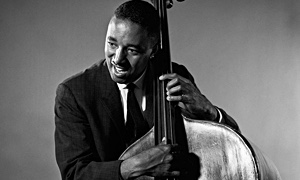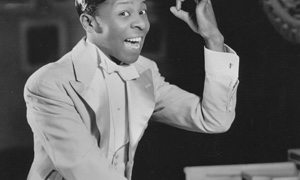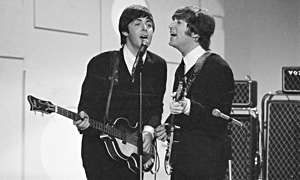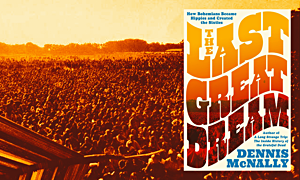Home » Jazz Articles » Book Review » Go Slow: The Life of Julie London
Go Slow: The Life of Julie London
 Go Slow. The Life of Julie London
Go Slow. The Life of Julie London Michael Owen
296 Pages
ISBN: 9781613738573
Chicago Review Press
2017
"Vinyl Viagra"
"Mainly I'm a lyric reader."
"Mickey Mouse...she can even make that sexy."
"I'm not a singer.
If all her movie footage over the years were put together, "there still wouldn't be enough to add up to one presentable part."
Will the real

Julie London
vocals1926 - 2000
Writing a biography of Julie London (1926-2000) couldn't have been easy. Michael Owen has done a superior job of research, assembling the story of a very private woman who was ultimately a footnote to pop culture in the 1950s and 1960s in the United States. Sadly, it seems, she could have been considerably more if she had wanted it.
That something more would have been as a pretty capable jazz singer, not just a lounge act, if not a particularly distinguished actress, but London, celebrated for her beauty, never got there. "You gotta have the ego for it," she admitted. "And I never did." Her own psychological and physical frailties kept her from becoming a major star, but that didn't bother her too much. To the contrary, a life of domesticity with a secure income was what she wanted, but her origins were very modest, so she either had to marry well or work a lot. As it happened, she did both, albeit at different stages of her life.
Born Gayle Peck, London was an early bloomer. At the age of fifteen, she caught the eye of an agent, of a photographer for Esquire, of a B-movie producer, and of an ambitious GI named Jack Webb, who was smitten by her pinup. She married Webb of "Dragnet" fame in 1947, but the marriage had failed by 1953, and was really over long before that. By then, she had had a role in one decent film, "The Red House," under her belt: her divorce from Webb left her with psychological scars, a substantial monetary settlement, a reputation as a gold-digger, and a career that was going nowhere.
Nowhere, that is, until she met Bobby Troup in 1954. Troup, taken with both her beauty and her uncomplicated vocal stylings, encouraged her singing, helped her assemble a band (that included

Barney Kessel
guitar, electric1923 - 2004
There were two distinguishing aspects to London's subsequent career: her vocal limitations and her fabulous appearance. She was, as they say, drop-dead gorgeous, with a face and figure to match. Her impact on men, even otherwise rational ones like jazz critic Ralph Gleason, was astonishing. As she began to record for Liberty, her album covers became successively more provocative and her identity as "sex in a bottle" even more firmly established.
Arguably, what her audience—especially male—saw in her mattered a lot more than what it heard. What it heard was not a virtuoso performer, but a stylist with a small sound and a limited range. Crowding the microphone, her voice, breathy, low, and sensual, projected outright sexual allure that framed her image. London was earthy, but she wasn't dirty: a fantasy, really, accompanied by small groups of outstanding players (

Jimmy Rowles
piano1918 - 1996

Emil Richards
percussion1932 - 2019
John Gray
trumpet and vocals
Dennis Budimir
guitar1938 - 2023

Al Viola
guitar, electric1919 - 2007
Don Bagley
bassb.1927

The Four Freshmen
band / ensemble / orchestraAs an actress, London had her problems. She suffered from severe stage fright when working in clubs, and her movie career did nothing to improve her self-esteem or reduce her anxiety. Cast in a dreary succession of B-movies with dubious scripts, lots of horses (Westerns were a staple) and the occasional unappetizing leading man, London's reviews were lukewarm, her performances uninspired, but her appearance, as usual, sensational. Not all the films were bad. One or two, "The Great Man," or the British film "A Question of Adultery" are worth watching. Especially in "The Great Man," London had a brief role as a boozed-up band singer that basically let her play a version of herself, down to the alcohol on which she evidently depended. None of her films were big box office successes and work eventually dried up. Other than in her sensational looks, she would remind no one of actress Elizabeth Taylor.
With the opening of the 1960s, London was in a bit of a fix. She had an apparently happy home life with Troup and a loving family, but her commercial prospects were dim. Since she was the principal support of her parents, a large family, probably Troup, and a luxurious home, she had a lot of overhead and needed to work. London did make a lucrative series of cigarette commercials for television (permissible in those days), was a headliner in Las Vegas, did foreign tours, and performed incessantly to make ends meet. As it did for so many other "aging" talents, television came to the rescue, not only in variety show appearances, but especially in the form of a successful series on NBC, "Emergency!" that ran for 120 episodes from 1972 to 1977. The money was good, the work was steady, and London was even nominated for a Golden Globe for her role as Nurse Dixie McCall. More to the point, she had largely stopped singing, made no more movies, and spent increasing amounts of time at home. For the last twenty years of her life, from 1979 through 1999, she was plagued by health problems. London declined quickly after the death of husband Bobby Troup in 1999 and she died in 2000.
Michael Owen has written an interesting book that fans of London or people interested in the popular culture of the 1950s will want to read. London was an enigmatic figure: cast as the definition of voluptuousness, she never viewed herself that way. If anything, she became increasingly uneasy with the nudity and open sexuality of films in the 1970s, whose scripts she wouldn't consider. She loved to sing, but she was afraid of performing, and medicated herself with alcohol, which, if not unusual, was still sad. London was a better singer than she ever gave herself credit for, although she thought her late Easy Does It was her best album. She was influenced by

Jo Stafford
vocals1917 - 2008

Sarah Vaughan
vocals1924 - 1990

Carmen McRae
vocals1920 - 1994

Tony Bennett
vocals1926 - 2023

Ray Charles
piano and vocals1930 - 2004
Tags
Book Reviews
Julie London
Richard J Salvucci
Go Slow
Michael Owen
Chicago Review Press
Bobby Troup
Barney Kessel
Ralph Gleason
Jimmy Rowles
Jo Stafford
Sarah Vaughan
Carmen McRae
Tony Bennett
Comments
PREVIOUS / NEXT
Support All About Jazz
 All About Jazz has been a pillar of jazz since 1995, championing it as an art form and, more importantly, supporting the musicians who make it. Our enduring commitment has made "AAJ" one of the most culturally important websites of its kind, read by hundreds of thousands of fans, musicians and industry figures every month.
All About Jazz has been a pillar of jazz since 1995, championing it as an art form and, more importantly, supporting the musicians who make it. Our enduring commitment has made "AAJ" one of the most culturally important websites of its kind, read by hundreds of thousands of fans, musicians and industry figures every month.


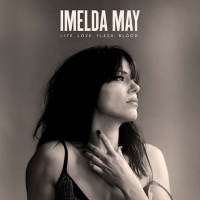


 Buy Now
Buy Now






